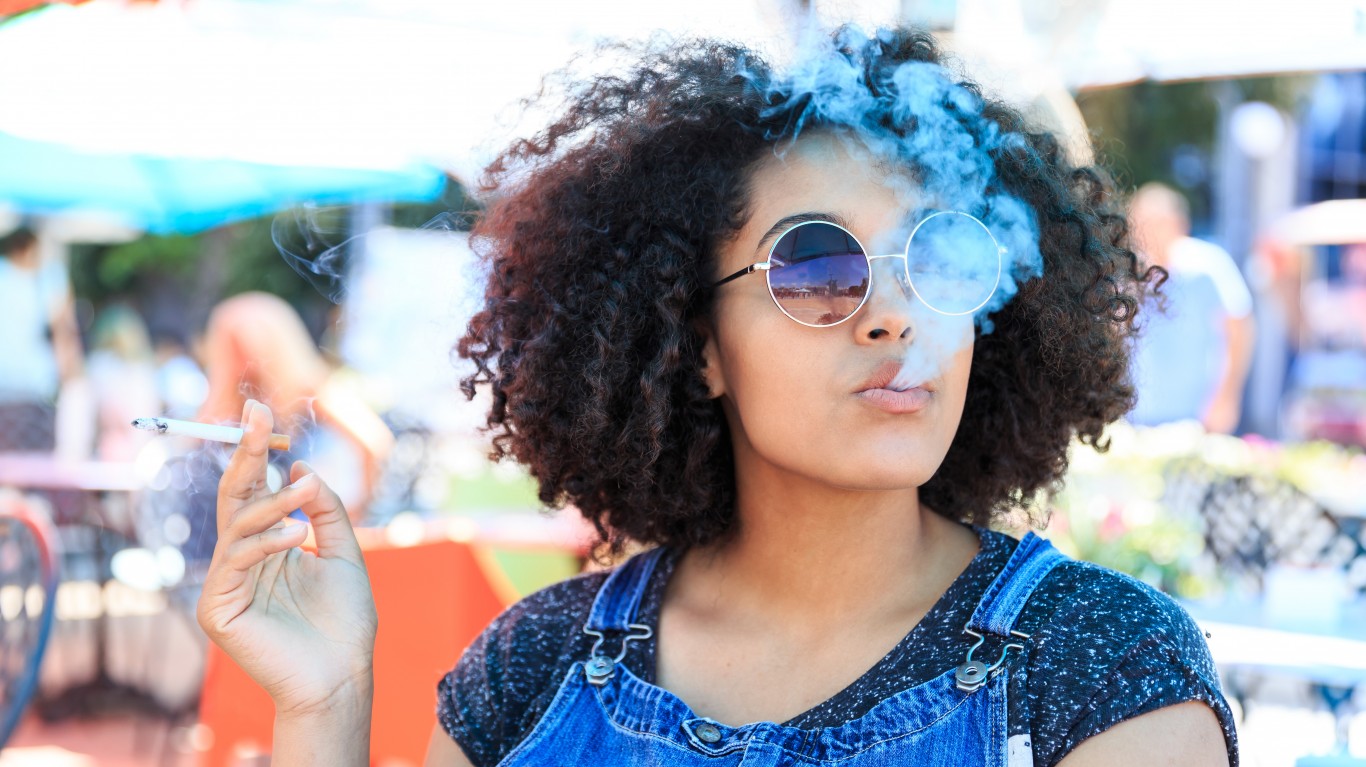
The U.S. Food and Drug Administration (FDA) on Thursday agreed to a petition from more than a dozen public health and civil rights groups that could lead to a ban on menthol cigarettes and flavored cigars by next year. The petition, submitted this past January, is aimed at prohibiting the sale of flavored tobacco products for “the protection of public health.”
In addition to reducing the overall number of Americans who smoke, the petition focuses on the “disproportionately” high use of menthol cigarettes among African American and other minority populations. According to the FDA’s letter announcing the proposed ban, the agency noted that “[n]early 85% of African Americans who smoke cigarettes smoke menthol cigarettes, whereas about 30% of White smokers are menthol smokers.” The FDA also noted that “[t]his unequal use of menthol cigarettes by race/ethnicity has not changed since 2011.”
Newport is the best-selling brand of menthol cigarettes in the United States. They are made by Reynolds American, which was acquired in 2017 by London-based British American Tobacco PLC (NYSE: BTI) in a deal worth more than $49 billion. Newport is the second-best-selling brand in the United States, with a total market share of around 15%.
ITG Brands, a subsidiary of the U.K.’s Imperial Tobacco company, makes both Salem and Kool menthol cigarettes. U.S.-based Altria Group Inc. (NYSE: MO) and Philip Morris International Inc. (NYSE: PM) make Marlboro Menthol cigarettes.
Acting FDA Commissioner Dr. Janet Woodcock stated that banning menthol would prevent an average of nearly 16,000 tobacco-related deaths a year, about a third of which would be among African Americans. About 85% of African American smokers smoke menthol cigarettes.
In its announcement, the FDA noted the impact on African Americans who smoke menthol cigarettes:
Once a user is addicted, menthol’s flavor and sensory effects facilitate continued smoking and menthol makes it harder for them to quit, particularly among daily smokers. This effect is most prevalent among African American menthol smokers, who disproportionately have more difficulty quitting than non-menthol smokers. Consequently, the continued marketing of menthol cigarettes raises profound health equity issues. This is true for active smokers as well as nonsmokers. From 2011-2018, the prevalence of secondhand smoke exposure was approximately twice as high among non-Hispanic Black nonsmokers compared to nonsmokers of other races/ethnicities.
The FDA must follow its standard rulemaking process before banning flavored cigarettes and cigars. The agency will issue a notice of proposed rulemaking, seek public comment on the proposed rule and promulgate a final rule. The entire process could take a year or two, if it moves quickly.
Far more likely is that the tobacco industry will challenge any ban on every conceivable point and drag the legal challenges out for years.
Travel Cards Are Getting Too Good To Ignore (sponsored)
Credit card companies are pulling out all the stops, with the issuers are offering insane travel rewards and perks.
We’re talking huge sign-up bonuses, points on every purchase, and benefits like lounge access, travel credits, and free hotel nights. For travelers, these rewards can add up to thousands of dollars in flights, upgrades, and luxury experiences every year.
It’s like getting paid to travel — and it’s available to qualified borrowers who know where to look.
We’ve rounded up some of the best travel credit cards on the market. Click here to see the list. Don’t miss these offers — they won’t be this good forever.
Thank you for reading! Have some feedback for us?
Contact the 24/7 Wall St. editorial team.


